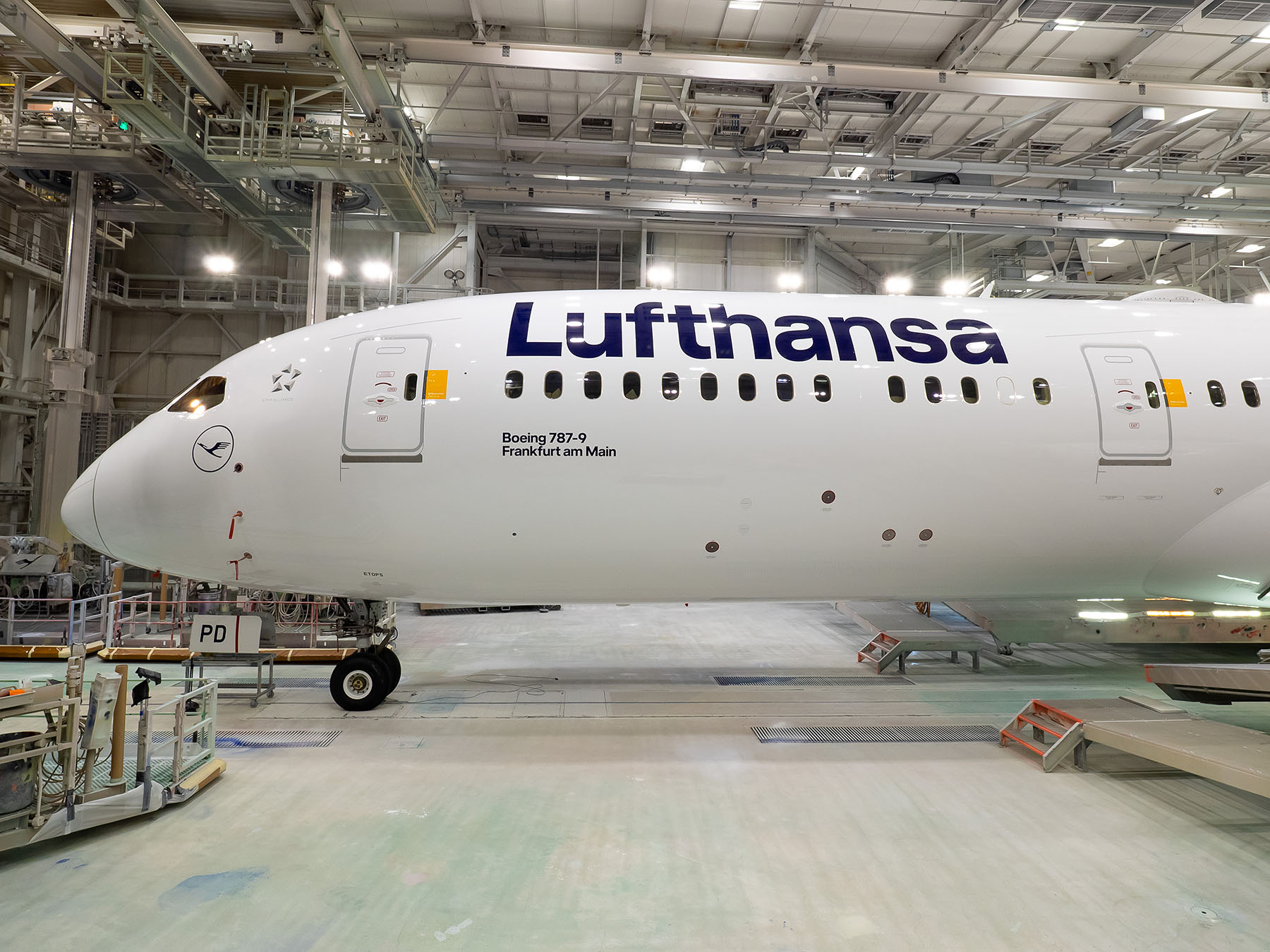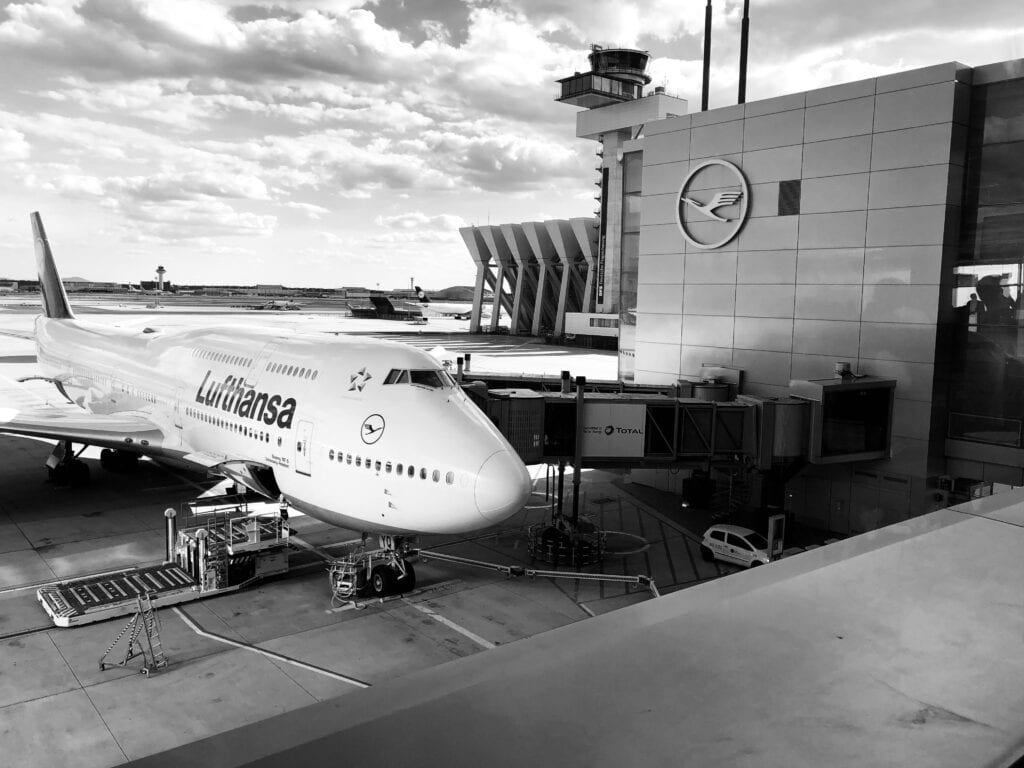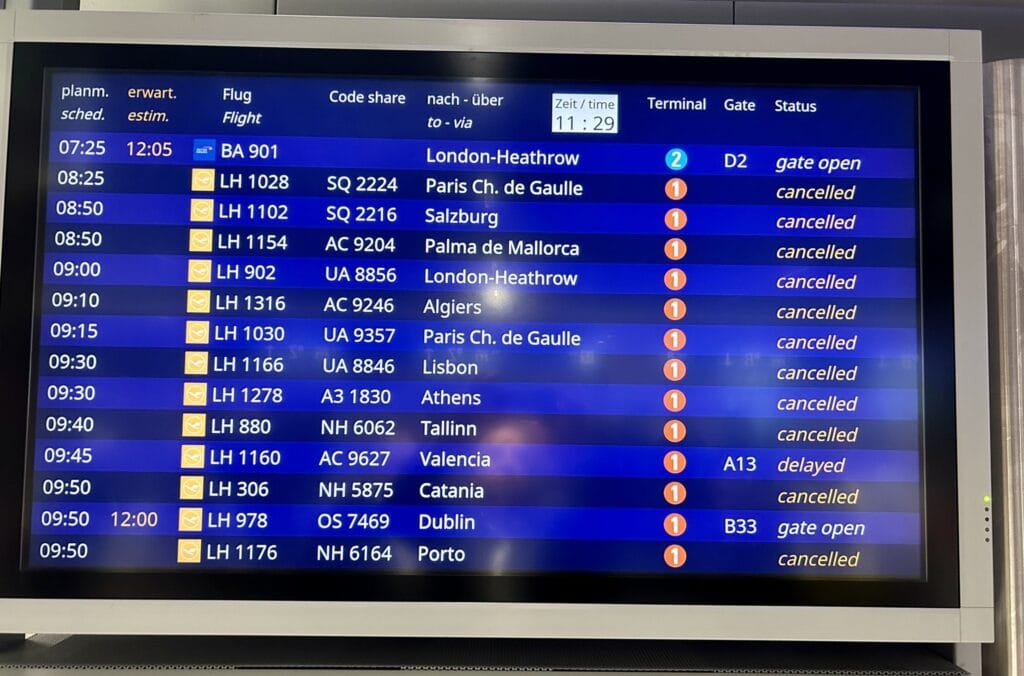Live Updates: Lufthansa Grounds Flights Following Major System Outage
A major IT system failure has affected all flights operated by the Lufthansa Group, including Swiss, Brussels Airlines and Eurowings
February 15, 2023

Photo: Courtesy of Lufthansa
German flag carrier Lufthansa and its subsidiary airlines—including Swiss, Brussels Airlines, Eurowings, and Edelweiss Air—have reported a major IT fault that has caused massive delays and flight cancellations across its entire network.
Thousands of passengers have been stranded across Germany and Europe as agents cannot check them in and dispatch any flights.
Passengers reported via social media that Lufthansa had been boarding planes manually, and the check-in agents were not printing the baggage tags due to the system’s crash.
“Due to an IT failure, many Lufthansa IT systems are currently not working. Because of this reason, passengers must expect disruptions in the flight program and during the check-in process,” said the airline.

Photo: Lufthansa Boeing 747-8 at Franfurt Airport. Courtesy of Alessandro Stigliani / Unsplash
Lufthansa has had to cancel all its domestic flights citing a group-wide IT system failure caused by an incident in Frankfurt. As a result, the airline has asked its domestic customers to “not proceed to the airport” and to book a domestic train ticket, later to be refunded via the airline’s website.
The airline’s international flights have also been affected by the outage. Frankfurt Airport is Lufthansa’s main hub and relies on a tight flight connecting operation from domestic/regional to long-haul flights, and vice-versa.
“During construction work in Frankfurt, fiber optic cables belonging to a telecom service provider were damaged, causing an outage of Lufthansa’s IT systems at Frankfurt Airport,” tweeted the airline earlier today.
Auch in 5m Tiefe ist unsere #Glasfaser nicht in Sicherheit vor Betonbohrern. 😱 Nach Düsseldorf am Wochenende jetzt auch in Frankfurt. Unsere Techniker sind bereits vor Ort. Aufgrund der erheblichen Schäden und Situation auf der Baustelle wird die Behebung äußerst schwierig. pic.twitter.com/d3KasCplVU
— Deutsche Telekom AG (@deutschetelekom) February 14, 2023
German telecommunications provider Deutsche Telekom AG tweeted photos of the drilling incident that perforated some of the company’s fiber lines that feed Lufthansa’s system. “Even at a depth of 5 meters, our [lines are] not safe from concrete drills,” said the company. “Our technicians are already on site. Due to the considerable damage and situation on the construction site, the remedy will be extremely difficult.”
Frankfurt Airport, the airline’s main operating hub, has had to issue a ground stop due to a lack of available parking space for incoming planes. “Due to a low availability of positions for aircraft, no landings took place at Frankfurt airport,” said Fraport, the airport’s managing company. According to them, even though “sporadic landings are currently taking place again,” delays and cancellations seem inevitable until a proper solution is found.

Photo: Courtesy of Kurt Hofmann / @HofmannAviation
According to the German Air Traffic Control, most flights to Frankfurt had been re-routed to Düsseldorf, Cologne, and Nürnberg, hoping to alleviate the airport’s tarmac from filling up and causing more disruption.
Flightradar24, a flight tracking website, noted that in addition to the airline’s IT outage, fog is also causing delays at Frankfurt Airport.
Lufthansa flights in European airspace – yesterday vs today 11:00 UTC.
Many Lufthansa Group flights are delayed or cancelled because of an IT outage. Fog is also affecting flights to and from Frankfurt.https://t.co/TSlpyHpD4R pic.twitter.com/YNVTQU7qGI
— Flightradar24 (@flightradar24) February 15, 2023
Lufthansa noted that “flight operations are expected to stabilize in the early evening.”
Airline System Outages: Common Threat
Over the past few years, several IT failures in the airline industry have led to flight delays, cancellations, and even the grounding of entire fleets, causing significant financial losses for airlines and inconvenience for hundreds of thousands of passengers.
Looking back, one of the most notable examples of airline technology failure is the British Airways system crash in 2017. Caused by a power surge, the IT outage resulted in the cancellation of all British Airways flights from the airline’s London Heathrow and Gatwick airports, affecting over 75,000 passengers and costing the airline an estimated $102 million in compensation and refunds.
Just recently, Southwest Airlines took a hit of $825 million in lost revenue and compensation costs after canceling 16,700 flights and delaying thousands of others in the aftermath of a blizzard. Analysts attributed Southwest’s difficulties to staffing shortfalls, exacerbated by outdated scheduling software, which left the airline’s employees manually matching flight crews with available planes.
Airlines must continue to invest and develop reliable, robust, redundant systems to mitigate this common threat of failing software. Additionally, airlines must prioritize the safety of passengers and implement strict regulations and oversight to ensure that technology is not compromising safety.
– This is a developing story




